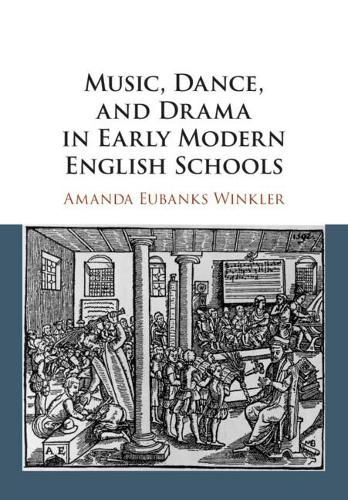Readings Newsletter
Become a Readings Member to make your shopping experience even easier.
Sign in or sign up for free!
You’re not far away from qualifying for FREE standard shipping within Australia
You’ve qualified for FREE standard shipping within Australia
The cart is loading…






Music, Dance, and Drama in Early Modern English Schools is the first book to systematically analyze the role that the performing arts played in English schools after the Reformation. Although the material record is riddled with gaps, Amanda Eubanks Winkler sheds light on the subject through an innovative methodology that combines rigorous archival research with phenomenological and performance studies approaches. She organizes her study around a series of performance-based questions that demonstrate how the schoolroom intersected with the church, the court, the domicile, the concert room, and the professional theater, which allows her to provide fresh perspectives on well-known canonical operas performed by children, as well as lesser-known works. Eubanks Winkler also interrogates the notion that performance is ephemeral, as she considers how scores and playtexts serve as a conduit between past and present, and demonstrates the ways in which pedagogical performance is passed down through embodied praxis.
$9.00 standard shipping within Australia
FREE standard shipping within Australia for orders over $100.00
Express & International shipping calculated at checkout
Music, Dance, and Drama in Early Modern English Schools is the first book to systematically analyze the role that the performing arts played in English schools after the Reformation. Although the material record is riddled with gaps, Amanda Eubanks Winkler sheds light on the subject through an innovative methodology that combines rigorous archival research with phenomenological and performance studies approaches. She organizes her study around a series of performance-based questions that demonstrate how the schoolroom intersected with the church, the court, the domicile, the concert room, and the professional theater, which allows her to provide fresh perspectives on well-known canonical operas performed by children, as well as lesser-known works. Eubanks Winkler also interrogates the notion that performance is ephemeral, as she considers how scores and playtexts serve as a conduit between past and present, and demonstrates the ways in which pedagogical performance is passed down through embodied praxis.